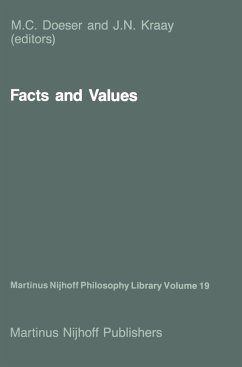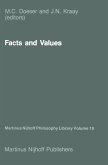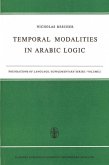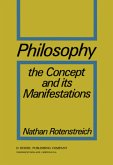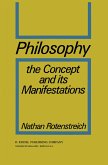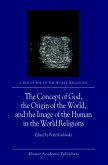The answer to philosophical questions will often depend on the position one takes regarding the fact-value problem. It is, therefore, not surprising that, in the tradition of western philosophy, the past 200 years or so record an animated discussion of it. In the present collection the debate is continued by representatives of various "schools" in contemporary western thought. A number of philosophers from non-western cultures, too, enter into it. The contributions do not all reflect on the same theme, nor do they use the same approach. Essays written by philosophers sympathetic to the analytical tradition are followed by reflections on the part of those inspired by phe nomenology. A third group of contributions is by non-western thinkers, who are more likely to approach the problem in terms of culture. Their engage ment with the issue clearly shows, among other things, that it is almost exclusively in the western tradition that the fact-value distinction is often understood as an outright dichotomy. The occasion for the publication of this collection is Dr. Cornelis Anthonie van Peursen's retirement as Professor of Philosophy. This year he leaves the Free University, Amsterdam; until 1982 he was professor at the University of Leyden as well. In the Netherlands and beyond he has become known for his concern with constructive comparison of diverging philosophical trends and the cross-cultural fertilization of thought. Characteristic of his career are his efforts to render the results of academic philosophizing understand able to a broader audience.

